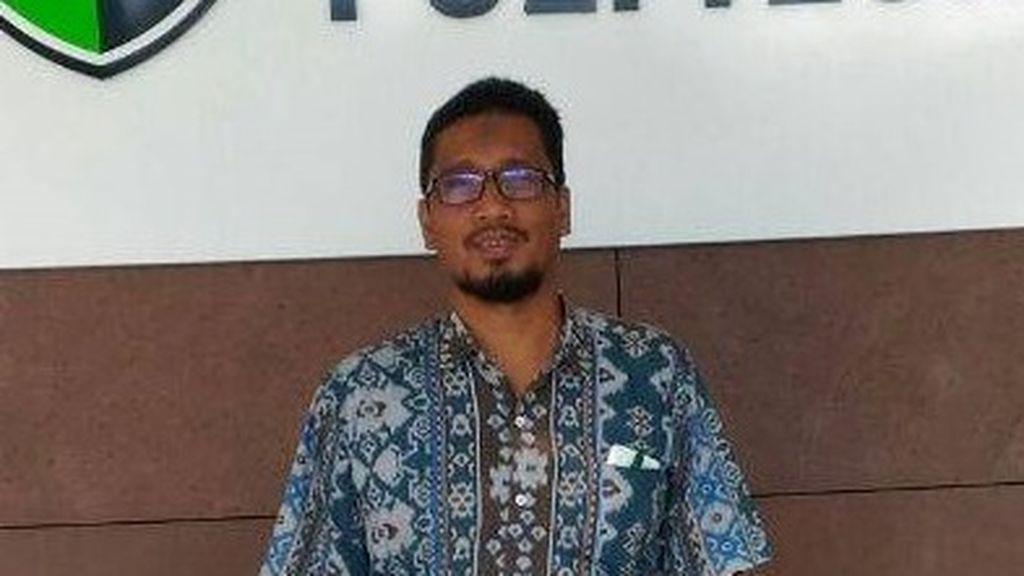Charging the Vocational Vision of Presidential Candidates
The next president not only needs to mainstream vocational education, but also understand technological changes.
This article has been translated using AI. See Original .
The following article was translated using both Microsoft Azure Open AI and Google Translation AI. The original article can be found in Menagih Visi Vokasi Capres

Illustration
Very few presidential candidates mentioned vocational education as an effort to welcome the demographic bonus towards Golden Indonesia 2045. Of the three presidential candidates in the 2024 Presidential Election contestation, no one has heard of their seriousness in developing vocational education to welcome the demographic bonus.
When a lot of developed countries are struggling with the reduction in their productive population, Indonesia is abundant in it. The Golden Indonesia Vision 2045 is not just a pipe dream if the elected president has a vision and commitment to make vocational education as the key to unlocking the demographic bonus.
Vocational vision
Vocational education is education for the world of work (education for vocation). Vocational education aims to prepare graduates for work, one of the programs of which is providing special reproductive training in accordance with the orders of teachers or instructors with a focus on developing industrial needs, containing special skills. The main motivation for vocational education lies in economic benefits for the future (Pavlova, 2009: 7).
Graduates of vocational education should be more in demand in the industry than those with academic education. However, in reality, academic education is becoming the darling of the nation's youth.
Vocational education is still viewed as unimportant. Majority of high school graduates still consider vocational education as a last resort, when all academic college entrance options reject it.
Also read: Vocational Education and Indonesia's Vision 2045
However, academic education does not prepare graduates to be ready-to-work employees, but it still remains the main target for students to continue their education. Referring to Law Number 12 of 2012 concerning Higher Education, academic education refers to undergraduate and/or postgraduate programs aimed at mastering and developing branches of science and technology. Academic education prepares graduates to continue to higher levels to be educated as researchers, lecturers, and other academic staff.
In developed countries such as Germany, England, Switzerland, China, India, and Japan, vocational education is not underestimated. There, not only is the quantity of vocational education greater, but it also becomes a main partner of the industrial world, meeting both the needs of the workforce and the development of its products.
Even before vocation students graduate, they have already become industry partners, such as by doing internships and conducting research together in the industry. This experience gives vocational alumni added value when entering the workforce.
/https%3A%2F%2Fasset.kgnewsroom.com%2Fphoto%2Fpre%2F2024%2F01%2F19%2F1f4057f4-c4f2-453a-be1b-47ef306d72d1_jpg.jpg)
Exhibitors completing chair designs at the exhibition held at 10th State Vocational High School in Semarang City, Central Java on Friday (19/1/2024).
More strengthened
Actually, President Joko Widodo is serious about developing vocational education. This is evidenced by the formation of the Vocational Directorate General (Diksi) which specifically oversees vocational education. Vocational education, which was initially under the Directorate General of Higher Education (Dikti), now has its own home. Thus, vocational education is more free to plan and design various programs for the advancement of vocational education.
In addition, the President also launched Presidential Regulation Number 68 of 2022 regarding the Revitalization of Vocational Education and Vocational Training (PVPV). The efforts to realize the presidential regulation are referred to by Minister of Education, Culture, Research, and Technology (Mendikbudristek) Nadiem Makarim as six pillars.
The presidential candidates competing in the 2024 election must be willing to explain their mission, vision, and program for the development of future vocational education as a representation of Indonesia's demographic bonus.
The first pillar, designing a labor market information system. The second pillar, the implementation of competency-based vocational school education and vocational school centers of excellence. The third pillar, the implementation of vocational higher education based on link and match and dual system. The fourth pillar, organizing competency-based training and skills courses, future jobs, skilling, reskilling, and upskilling.
Fifth pillar, quality assurance for vocational education and training, competency certificates, and accreditation for graduate certificates. Sixth pillar, increasing the role of stakeholders including ministries/agencies, local governments, the Indonesian Chamber of Commerce and Industry (Kadin), and the National Professional Certification Body (BNSP).
I think the current government period is serious about improving vocational education, even though the results have not yet been able to lift vocational education. It is not as easy as flipping a hand to improve the quality of vocational education. There are still many alumni who struggle in long job queues.
/https%3A%2F%2Fasset.kgnewsroom.com%2Fphoto%2Fpre%2F2023%2F10%2F04%2F3721fc9e-d894-4b96-95fe-cc56de147aa9_jpg.jpg)
Long queues of job seekers were seen at the Mega Career Expo 2023, held at the Senayan Multipurpose Building in Central Jakarta on Wednesday (4/10/2023).
The data from the Central Statistics Agency (BPS) as of August 2022 shows that out of the total workforce of 143.72 million people, vocational education graduates are actually contributing to open unemployment, at a rate of 16-24 percent. This indicates that a commitment to elevating vocational education alone is not sufficient. Fast and accurate solutions are also strongly needed.
However, the future is full of uncertainty. Warren Bennis, the owner of the volatility theory, says that the world is changing rapidly, turbulently, unstable and unpredictable. No one can predict that next year could be the worst year for almost all business sectors in the world.
The world has already experienced it when in 2019, human lifeline almost stopped beating due to the onslaught of the Covid-19 virus. Similarly, the threat of the digital disruption era will continue to shake up market structures, overthrow old industries, and eliminate many professions.
Also read: Fresh Breath for Vocational Education
The reality of the rapidly changing world demands that the future Indonesian President does not only prioritize vocational education, but also understands forthcoming technological changes because they are related to the future workforce needs.
Do not allow various vocational study programs to become irrelevant to the job market due to technological changes. Vocational education with practical skills will continue to develop and become one of the solutions in addressing unemployment issues and producing quality human resources in the era of the Fourth Industrial Revolution.
If the government is currently paying enough attention to vocational education, but the results have not yet met the expectations of the job market, then the presidential candidates in the 2024 election must be even more serious in developing vocational education. The competing presidential candidates in the 2024 election must be willing to explain their mission, vision, and program for the development of future vocational education as a bonus for Indonesia's demographic dividend. Hopefully they are willing!
Arfanda Siregar, Chairman of the Academic Commission Medan State Polytechnic; Mudir Islamic Center Ali Bin Abi Tholib; Doctor of Technology and Vocational Education
Facebook: fandasiregar; Twitter: ArfandaSiregar

Arfanda Siregar